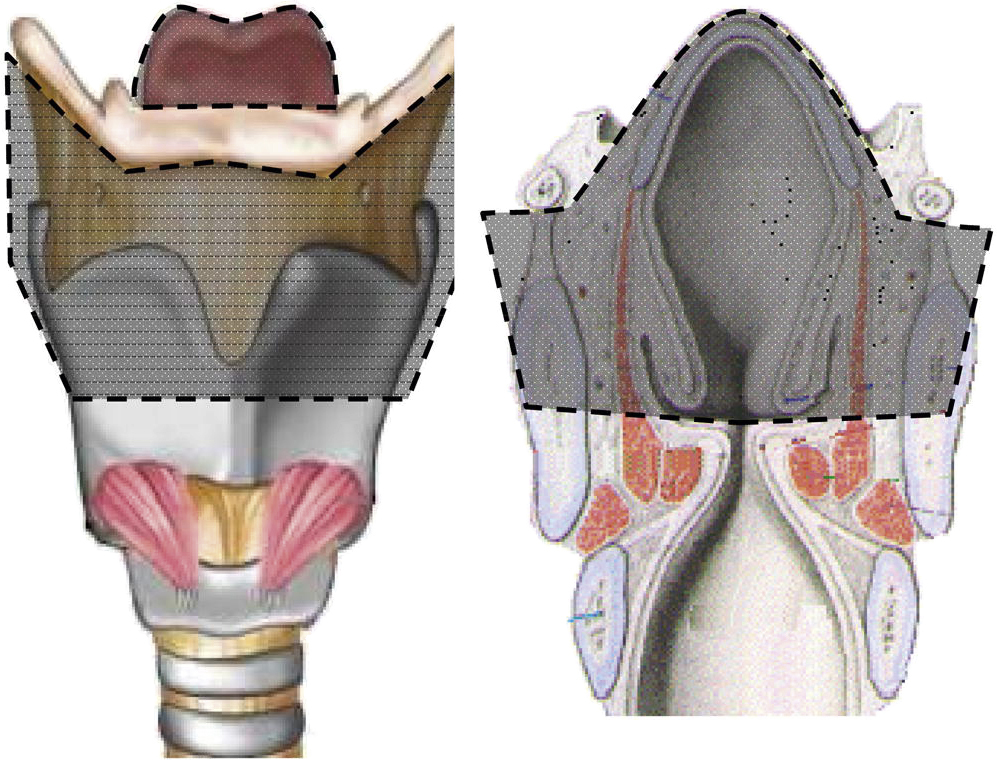laryngectomy /ler′injek″təmē/ [Gk, larynx + ektomē, excision] , surgical removal of the larynx performed to treat cancer of the larynx. In a partial laryngectomy only the vocal cords are removed. If the malignancy is extensive, the entire larynx is removed, along with the hyoid, epiglottis, false cords, true cords, cricoid cartilage, and two or three rings of the trachea; the trachea is sutured to the skin of the neck, and the patient breathes through his or her neck, not through the mouth. Compare neck dissection, radical neck dissection. −laryngectomize, v. ▪ OBSERVATIONS: After surgery the patient is observed for bleeding. A humidified oxygen vaporizer may decrease coughing and mucous viscosity. IV fluids are given, and liquid feedings may be given via nasogastric tube. ▪ INTERVENTIONS: The patient cannot smell, sniff, or blow his or her nose. A Magic Slate and flash cards are useful for communication. Speech loss is permanent after total laryngectomy. ▪ PATIENT CARE CONSIDERATIONS: Before complete laryngectomy the patient is referred to a speech pathologist to discuss alaryngeal communication methods. This operation is permanent.

